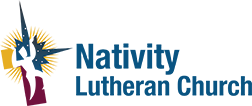
Week 5: Burning Sweetgrass – A Reflection on the Final Week
Throughout the past month, we have journeyed together through the pages of Robin Wall Kimmerer’s Braiding Sweetgrass. Now, as we reach the final week, we are invited to reflect on the theme of “Burning Sweetgrass.” This week’s readings lead us on a path of introspection, encouraging us to examine our relationship with the natural world, our community, and ourselves. In this blog post,I will take us into the key takeaways from Week 5 and explore questions that can help us apply the book’s lessons to our lives.
Windigo Footprints
The Windigo is a mythological creature that was often used in Algonquian legend to explain why people sometimes display behaviors that harm themselves and others. Robin Wall Kimmerer suggests that we all have some characteristics of the Windigo within us. We often prioritize our personal gain over the needs of others or the environment. We can combat the Windigo within by cultivating an attitude of gratitude and acknowledging that all living things are connected.
The Sacred and the Superfund
The Sacred and the Superfund essay in Week 5 explores the environmental destruction caused by human activity. As people of faith, it is easy to feel helpless in the face of large-scale environmental issues. However, focusing on the sacredness of the natural world can help us find hope and inspiration. We must also hold corporations accountable for their actions and demand policies that prioritize the health of the earth and all living beings.
People of Corn, People of Light
We are all storytellers, and the stories we tell shape our understanding of the world around us. The People of Corn, People of Light essay emphasizes the importance of creating our own stories to view our relationships with the natural world as sacred. We can do this by learning about the local Indigenous traditions and cultures that honor nature and by incorporating those ideas into our own narratives.
Collateral Damage
Grief is a natural response to loss. Collateral Damage explores the grief that accompanies environmental destruction, both on a personal and global scale. But through grief, we can also find healing and motivation to take action. We can honor and remember what we have lost while also working towards a better future for ourselves and the natural world.
Shkitagen: People of the Seventh Fire
Shkitagen: People of the Seventh Fire is an essay that reflects on the teachings of the Anishinaabe Prophecy of the Seventh Fire. The prophecy speaks of a time when the people will have a choice between two paths, one of which leads to destruction and the other to beauty. Kimmerer challenges us to consider the fire within us and to choose the path of beauty by taking action to protect and care for the natural world.
Defeating Windigo
Finally, the Defeating Windigo essay calls us to modify our economy and economic behavior to stop harming the environment. We must recognize that a capitalist system that prioritizes profit over the health of the earth and all living beings is unsustainable. We can shift towards more sustainable living by investing in renewable resources and supporting businesses that prioritize environmental stewardship.
Epilogue: Returning the Gift
The epilogue of Braiding Sweetgrass reminds us of the importance of generosity. Generosity is not just about giving material possessions but also about giving of ourselves, our time, and our knowledge. As we reflect on the lessons learned from our journey through Braiding Sweetgrass, we are invited to return the gift by actively caring for the natural world and cultivating a spirit of generosity towards all living beings.
The final week of Braiding Sweetgrass challenges us to reflect on our relationship with the natural world and to take action towards a more sustainable and just future. By examining our relationship with the Windigo within, honoring the sacredness of the earth, creating our own stories to view nature as sacred, holding corporations accountable, embracing grief, acknowledging the fire within us, changing our economic behavior, and practicing generosity, we can return the gift of life and ensure a more beautiful and sustainable future for all.
Here are the final reflection questions for the readings:
Windigo Footprints
- Do we all have some characteristics of a Windigo?
The Sacred and the Superfund
- What makes you feel helpless?
People of Corn, People of Light
- How can we create our own stories (or lenses) to view sacred relationships?
Collateral Damage
- What is the healing power of grief?
Shkitagen: People of the Seventh Fire
- What fire within you has proven to be both good and bad?
Defeating Windigo
- How can we modify our economy or our economic behavior to stop harming the environment?
Epilogue:Returning the Gift
How do you view generosity?


